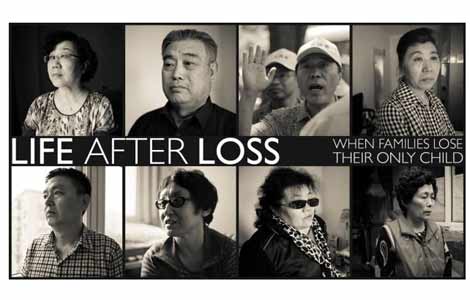Lavish wedding ebbs under luxury ban
Updated: 2013-10-02 14:02
(Xinhua)
|
||||||||
 |
|
A lavish wedding banquet in Taiyuan, North China's Shanxi province, July 1, 2013. [Photo/CFP] |
SHIJIAZHUANG - With no expensive banquet or rituals, Li Yefei and her husband held their wedding ceremony in a meeting room at a cost of 500 yuan (about $81).
Li, 28, a civil servant in North China's Hebei province, put her wedding to bed in just 15 minutes with no firecrackers, wedding planner or banquet for dozens of family members and colleagues.
"This marriage is a novelty and simple. It saved our time and freed others from the obligation of buying things that no one needs," Li said.
The forthcoming week of national holidays has been seen as a perfect time for Chinese young couples to get hitched, but increasingly, or at least for those who work in government, a rather low-profile approach is the order of the day, at least during the national frugality campaign.
In China, there has been an amazing growth in sectors which didn't even existed twenty years ago and lavish weddings have become almost de rigueur in China.
According to a wedding planning agency, the average cost of a wedding in China is around 100,000 yuan, although the company has handled weddings that have cost a staggering 10 million yuan.
The craze to vie with others with grand ceremonies has become an excuse for superfluous waste and heavy "red envelope" obligations, which have just become another way for bribes to be taken and delivered.
In Shijiazhuang, capital city of Hebei, the cost at wedding banquets has hit 700 million yuan annually, while each cash gift floats from 100 to many thousands, reports said.
Lavish wedding ceremonies funded by officials or coal barons who marrying off their daughters by spending millions or even hundreds of millions have made headlines recently, breeding grumbling discontent among the public.
"We are promoting thrifty wedding ceremonies to put a brake on extravagance and waste," said Xu Zhenke, director of the discipline office in Hebei's civil affairs department.
Disciplinary authorities of the Communist Party of China (CPC) have repeatedly barred officials from inviting subordinates to social events, holding luxury banquets and receiving large cash gifts, or other presents.
Such moves chime with the central government's call for elimination of the four "evil winds" -- formalism, bureaucracy, hedonism and extravagance -- a expansion of the CPC leadership's "eight-point" rules on bureaucratic reform issued late last year.
In July, the CPC head of a poverty stricken township in Hebei was sacked over his daughter's extravagant wedding which cost as much as 200,000 yuan for the wedding banquet and generated 1 million yuan in gifts from others.
A deputy procurator general of Ruicheng county in North China's Shanxi province was fired for hosting a banqueting with over 100 tables over four days and accepting a large sum of money.
Gu Huaipu, head of Hebei provincial civil affairs department, said the wedding should be a solemn testimony of the start of a marriage, which has gradually been converted by "covert" conduct.
The frugality campaign will help the wedding to return to its traditional meaning, according to Gu.

 Driver shot dead in car chase at US Capitol
Driver shot dead in car chase at US Capitol
 NY SUV driver's wife: We were in 'grave danger'
NY SUV driver's wife: We were in 'grave danger'
 Death toll in sunk boat off Italy could top 200
Death toll in sunk boat off Italy could top 200
 A southern staple
A southern staple
 Tropical Storm Karen aims for US Gulf Coast
Tropical Storm Karen aims for US Gulf Coast
 City rush, island time
City rush, island time
 Death toll in Italy migrant boat wreck rises to 94
Death toll in Italy migrant boat wreck rises to 94
 Lang Lang: First Chinese winner of Classic Brits Award
Lang Lang: First Chinese winner of Classic Brits Award
Most Viewed
Editor's Picks

|

|

|

|

|

|
Today's Top News
US hints Iran could get some sanctions relief
Hundreds dead as boat sinks off Italy
Twitter unveils IPO filing, aims to raise $1 b
Gunfire forces brief lockdown at US Capitol
NY driver's wife says in danger
Call for new 'maritime silk road'
Shutdown in third day
Plane crash kills 15 in Nigeria
US Weekly

|

|






